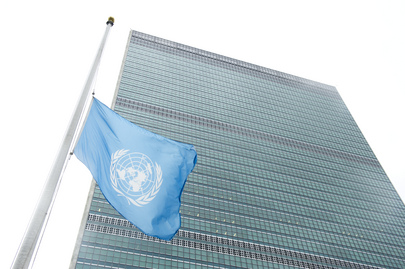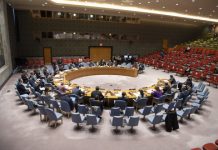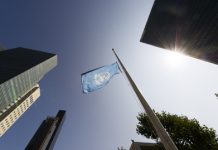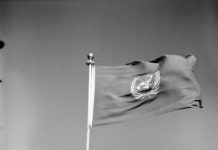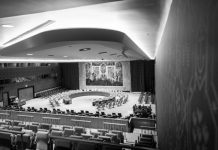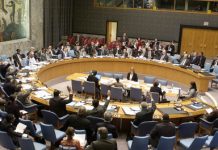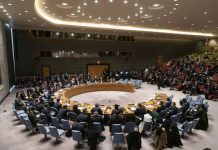UN Women’s Chief of Humanitarian Action Sofia Calltorp, who just returned from a visit to the enclave last week, said that women there repeatedly told her “there may be a cease-fire, but the war is not over”.
“The attacks are fewer, but the killings continue,” she said.
The UN aid coordination office, OCHA, warned on Monday that hostilities continued to be reported in various parts of the Gaza Strip, causing destruction, displacement and casualties.
UN Children’s Fund (UNICEF) said last week that since the Hamas-Israel pause in fighting was announced on 10 October, children were being killed in attacks in the enclave at a rate of two a day.
Struggling to survive
Briefing reporters in Geneva Ms. Calltorp recounted that during her trip which spanned the entire length of the Strip “from Jabalia in the north to Al-Mawasi in the south”, she saw that “to be a woman in Gaza today means facing hunger and fear, absorbing trauma and grief, and shielding your children from gunfire and cold nights”.
“It means being the last line of protection in a place where safety no longer exists,” she insisted.
Ms. Calltorp said that more than 57,000 women in Gaza now head their households and are left alone to struggle in supremely harsh conditions.
“Women showed me how water soaked through their makeshift tents, leaving the children shivering throughout the night,” she explained.
“This is what it means to be a woman in Gaza today, to know that winter is coming, and to know you cannot protect your children from it.”
Food still scarce
The senior official told the story of a woman she met whose home had been destroyed – “but every morning, she returns to the rubble to gather wood, burning the doors that once sheltered her family just to make breakfast for her children.”
A month and a half into the cease-fire food is still scarce and four times more expensive than before the war – as an example, an egg costs $2.00 on the market in Gaza – which is “out of reach for women with no income”, she said.
“It’s completely impossible for many of the women that I met to feed their families,” Ms. Calltorp insisted.
Displacement and disability
The women whom she talked to had been displaced “countless times”, she said – as many as 35 times since the start of the war in October 2023 in one case.
“Every move means packing the little they have, carrying their children, their elderly parents, choosing between one unsafe place and another,” Ms. Calltorp explained.
She also mentioned the “crisis of women and girls newly disabled by this war”, with over 12,000 of them living with long-term war-related disabilities.
With so much stacked up against them and their families, Gaza’s women “need the cease-fire to hold, they need food, they need cash assistance and they need winterization supplies, health services and vital psychosocial support,” the UN Women official said. She stressed how eager they were “to work, to lead and to rebuild Gaza with their own hands”.
“No woman or girl should have to fight this hard just to survive. We need more aid to enter into Gaza systematically and safely, and we need the killings to stop,” she concluded.
Source of original article: United Nations (news.un.org). Photo credit: UN. The content of this article does not necessarily reflect the views or opinion of Global Diaspora News (www.globaldiasporanews.com).
To submit your press release: (https://www.globaldiasporanews.com/pr).
To advertise on Global Diaspora News: (www.globaldiasporanews.com/ads).
Sign up to Global Diaspora News newsletter (https://www.globaldiasporanews.com/newsletter/) to start receiving updates and opportunities directly in your email inbox for free.


